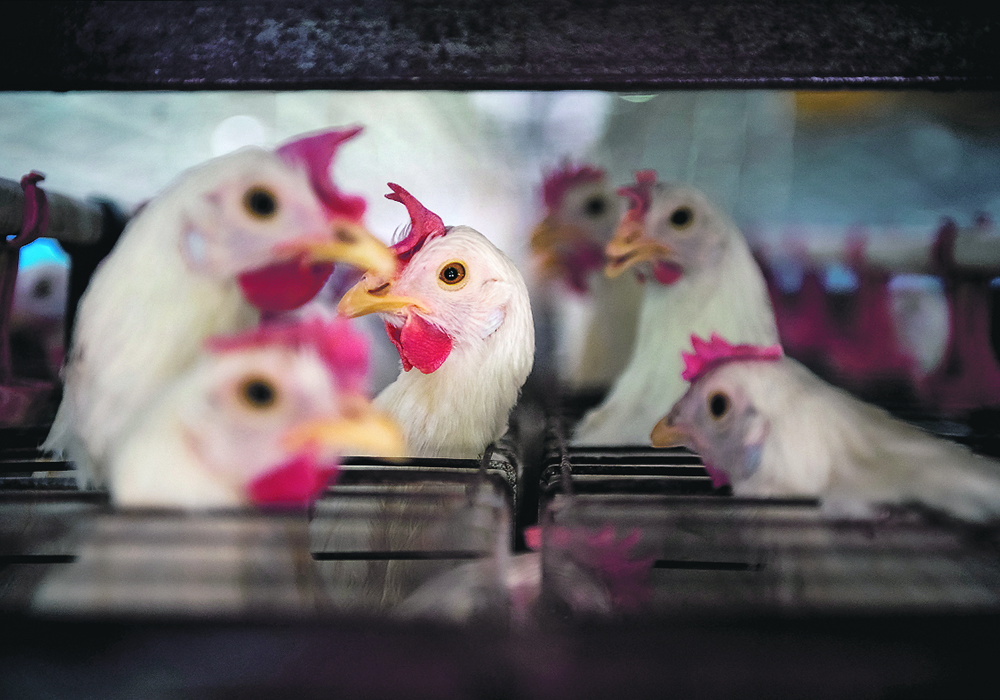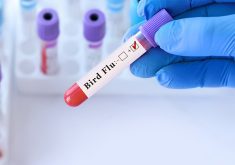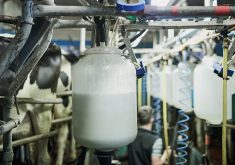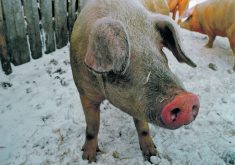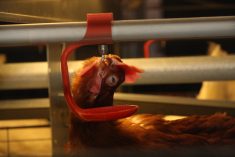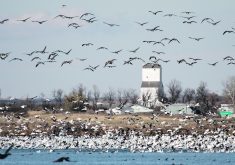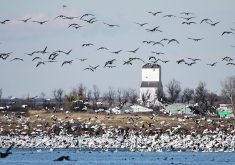The debate over Canada’s position to not vaccinate commercial birds against avian influenza appears to be going strong.
During Animal Health Canada’s avian influenza workshop, the issue and implications of a vaccination program were spotlighted.
“The number one issue to remember in vaccination is that vaccines are no substitute for bio-security,” said Canadian Food Inspection Agency veterinarian Clarice Lulai-Angi.
“We are far away from having a vaccine that is ready for use in Canada and for us to start thinking we’re going to have a vaccine anyway and lower our biosecurity threshold is dangerous.”
Read Also

Feds propose overhaul of chronic wasting disease control program
Chronic Wasting disease control program getting updated by Canadian Food Inspection Agency with feedback encouraged from producers.
Vaccines are being considered partly because “the current outbreak of avian influenza is so different from anything we have ever seen before,” said Lulai-Angi.
In the European Union, the outbreaks have become increasingly worse since 2016.
“When we see the continuation of these outbreaks, we do know that we can probably expect the worst,” she said.
Current research shows the latest strains of avian influenza are well entrenched within wild bird populations and it will continue to spread to domestic flocks.
Despite a recent reprieve in cases hitting commercial operations, indications from South America are that wild birds continue to infect farms and those birds are heading north, she said.
Lulai-Angi outlined the current standards for vaccinations for emergency use and prevention.
“Countries can use vaccination against avian influenza under very specific conditions. It should not affect the high-pathogeny avian influenza status of a (bird flu) free country,” said Lulai-Angi about the World Animal Health Organization standards.
But that would require a surveillance program to ensure vaccinated birds aren’t in turn spreading the virus.
There are many challenges to a vaccination program, she added, including the lack of a CFIA-approved vaccine in Canada.
Three are being developed and researched and all have their pros and cons, but “none of them are perfect at this time,” said Lulai-Angi.
Two vaccines are expected to be tested this summer, but more work will be required.
Some vaccines may require multiple doses for each bird, which is problematic, she said.
A vaccination program is a beginning, not an end to the avian influenza issue, added Lulai-Angi, who said that once enacted, such a program will require continued development of vaccines to match the virus as well as surveillance programs to ensure they are working.
The biggest issue, however, is how it will affect trade.
“There is no scientific or legal reason why using a vaccine should affect trade,” she said, “as long as there is a surveillance system in place for detecting infection in vaccinated as well as non-vaccinated flocks.”
But that won’t stop other countries that trade with Canada from altering this country’s status and considering it — or others with vaccination programs — as infected.
“These countries could possibly prohibit products originating from Canada,” she said.
Mexico has been vaccinating poultry since 1994, adjusting the vaccine to match differing strains.
But despite vaccinating more than 100 million domestic birds, five million were culled because of outbreaks of the recent highly pathogenic version of the virus.
“It’s important to remember, vaccines aren’t perfect in terms of whole prevention of avian influenza,” said Lulai-Angi.
Other countries such as China and Egypt have also had success with vaccination programs, but Lulai-Angi said these countries are primarily serving domestic markets.
The European Union plans to ease its vaccinated poultry regulations this spring.
As far as the United States goes, it is taking a wait and see approach, said Lulai-Angi.
Trade, and how a vaccine program will affect it, will likely be the key driver in determining if Canada will begin vaccinations, she said.
“That will be absolutely key before we even consider establishing a vaccination strategy,” she said.


